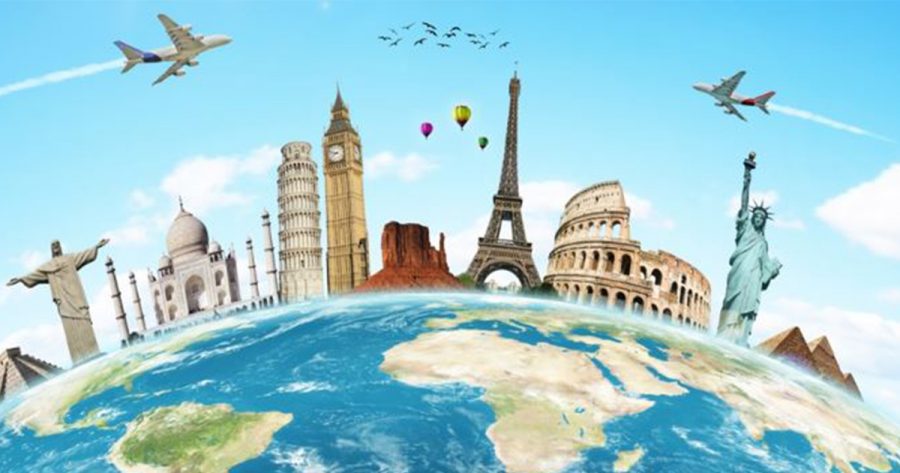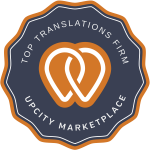
When traveling the globe, it is important to remember that not all countries cater to English speaking individuals. In fact, while us Americans tend to believe that English is a global language, that statement is far from the truth. While most countries do have English as a second language at areas such as airports, tourist spots, and possibly hotels; it is important to understand that English is not used everywhere you may go so it is best to be prepared. Here are some key words and phrases to remember to learn before traveling:
Learning basics such as how to introduce one’s self is vital when meeting new people, arranging a hotel room or even renting a vehicle. Begin by learning the basics such as hello, or my name is… This should be step 1 when organizing a trip to a part of the world you have never been.
- English: Hello
- Spanish: Hola
- French: Bonjour
- German: Guten Tag
- Italian: Ciao
- Russian: Здравствуйте
- Portuguese: Olá
Ensuring that others around you know of allergies, medications, or other medical needs are life vs. death when traveling. It may be something as simple as asking where a pharmacy would be if you need sunscreen or some more eye contact solution. In more extreme cases, such as asking for medication such as insulin, it is important to remember that receiving access to these types of things could change a luxurious vacation into a death sentence! For women travelers, being able to ask for things such as tampons or other feminine hygiene products should not feel like you are talking to your reflection. Understanding what kind of situations, you will run into while traveling is part of the preparation process and should not be a last-minute ordeal.
- English: I have allergies
- Spanish: Tengo alergias
- French: J’ai des allergies
- German: Ich habe Allergien
- Italian: Ho allergie
- Russian: У меня аллергия
- Portuguese: Eu tenho alergias
When traveling anywhere in the world, you want to be as comfortable as possible wherever you may be staying. The ability to make a cheap hostile feel like a 5-star resort could be as easy as understanding where the toilet paper is hidden! In my own personal traveling experience, learning to ask questions to your host can aid in things as simple as whether or not you may drink tap water. When traveling through Iceland, I noticed that the tap water was milky in appearance and smelled somewhat off. To my surprise, Iceland’s tap water uses natural water with a hint of Sulfur, thus creating the appearance and smell I previously mentioned. Iceland’s tap water is considered one of the best in the world with the natural minerals and taste that makes luxury bottled water lack in comparison.
- English: Where is the toilet paper?
- Spanish: ¿Dónde está el papel higiénico?
- French: Où est le papier toilette?
- German: Wo ist das Toilettenpapier?
- Italian: Dov’è la carta igienica?
- Russian: Где туалетная бумага?
- Portuguese: Onde está o papel higiênico?
Dining Culture that can make or break your experience!
Food is one of the largest draws for traveling the world. May it be something as simple as ordering coffee from a café right outside of the Catacombs in Paris, understanding etiquette may be the difference between receiving an Americano vs receiving dirty stares from the owner. When ordering food, make sure to know phrases such as, “I would like…” as well as understanding cultural tips on what is considered a delicacy. In many Asian countries, spiciness is another factor to consider. What we may consider hotter than Hell could be known as mildly spicy in particular regions. If you never ask, you may never know.
- English: I would like..
- Spanish: Me gustaría..
- French: Je voudrais..
- German: Ich würde gerne..
- Italian: Vorrei …
- Russian: Я хотел бы..
- Portuguese: Eu gostaria..
Shopping/ Bartering Negotiation Phrases!
Shopping is another experience that travelers seek, especially when traveling to fashion cities such as Milan, Paris, or Tokyo. If you are shopping on a budget, it is vital to remember phrases asking: how much, is there a discount, and even do you have change? These phrases will let you enjoy the experience in its truest sense while ensuring that you have enough money to get that flight home. Another essential area to look into when traveling is what type of currency does the country you are in use. While debit cards may work internationally, having the local currency may aid you when buying particular items. It is always smart to know the best places to receive currencies; WARNING, airports and ATM’s could be detrimental when exchanging.
- English: How much?
- Spanish: ¿Cuánto?
- French: Combien?
- German: Wie viel?
- Italian: Quanto?
- Russian: Сколько?
- Portuguese: Quanto?
Emergencies happen all the time, and the best way to handle an emergency when traveling is by preparing for such an event beforehand. When traveling abroad, learn each country’s respective emergency contact number. While 911 is used in the United States, it will not work in other countries so it is best to have that knowledge before you may need it. Phrases such as: call the police, ambulance, fire department may not only help you, but may help those around you in an emergency situation. It is best to be overprepared if this situation is to ever occur rather than relying on someone who may not understand the dangers of a particular scenario.
- English: Call the police!
- Spanish: ¡Llama a la policía!
- French: Appelle la police!
- German: Ruf die Polizei!
- Italian: Chiama la polizia!
- Russian: Вызовите полицию!
- Portuguese: Chame a polícia!
There is so much more to learn but having the basics when traveling will make all the difference between an enjoyable trip to the sea compared to begging someone to pee on your leg after a jelly fish attack! While this article offers tips for key words and phrases, it is best to learn about the country and culture of the places you are visiting in order to have the best possible trip. Remember, if you never ask, you may never know.
- admin
- February 15, 2020
- 1:23 am


